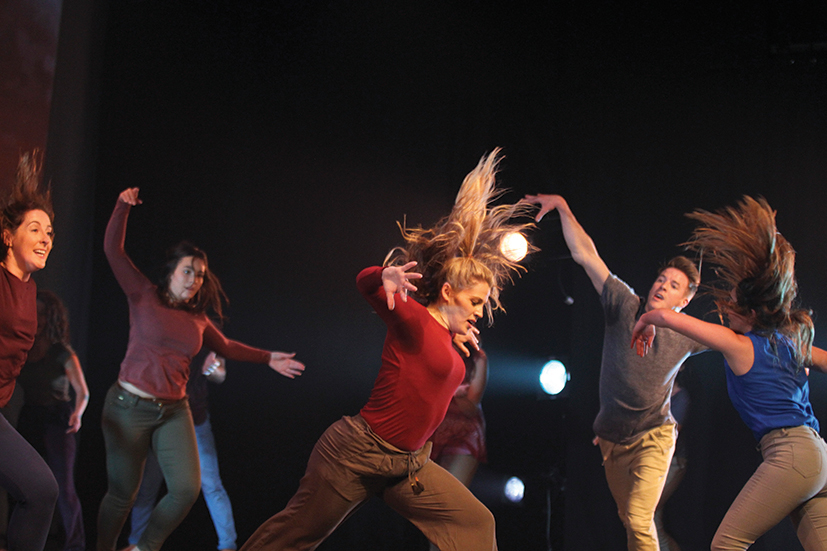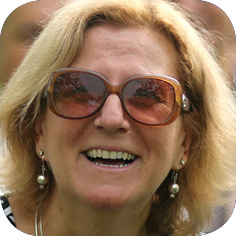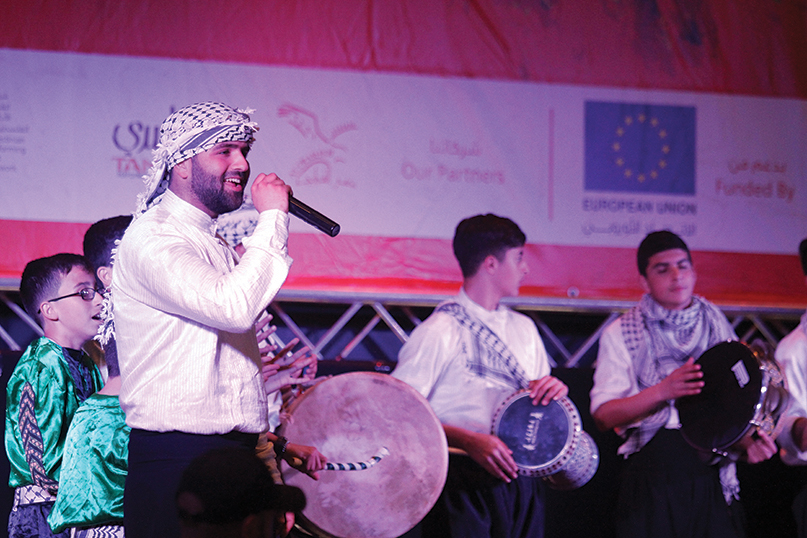
Culture is at the heart of our human identity. Through culture, we can bring people together; through culture, we can open spaces for dialogue while denouncing injustices; through culture, we preserve and develop the spirit of our traditions and the essence of our identity. Culture remains one of the most important elements for a peoples’ survival.
Since its establishment, the European Union has held the vision of culture being a social, economic, and political asset. Culture is particularly important in the context of the situation we are facing here in Palestine, in the region, or even back home in Europe. Palestine has very rich cultural traditions that reflect the social, economic, religious, and geographical diversity of its people. Moreover, Palestinians have always perceived culture as a political statement: a way to face the difficult reality of occupation; the absence of statehood; the restrictions on the mobility of Palestinian artists, audiences and products; and the fragmentation of the Palestinian territory.
For many years, the EU has supported the cultural sector in Palestine through a dynamic partnership with Palestinian cultural organizations. This support has different aims. In part, it wishes to promote Palestinian creativity – and all of us have had plenty of opportunity to witness the strength and dynamism of Palestinian music, art, poetry, dance, and drama. In part, it strives to promote freedom of expression. We should not forget that in a society deeply affected by the occupation, creativity and freedom of expression are vital elements in keeping hope alive by providing opportunities – especially to youth – for self-expression. But our aims go beyond these objectives. By promoting Palestinian culture, we are also working towards the wider goal of supporting the development of a future Palestinian state as part of the two-state solution. We do so by supporting Palestinians who reflect on their cultural and artistic heritage and on the different narratives that have shaped the past and will determine the future. We do so by encouraging wide participation in cultural activities that promote human values such as tolerance, respect for diversity, and respect for human rights and fundamental freedoms. We are proud to witness that our partnership has made a contribution to the rise of a vibrant cultural movement in Palestine over the past years. We are proud of the Palestinian artists who give most meaningful expression to the feelings and aspirations of the Palestinian people. We are proud of all the work that has been done jointly by Palestinian and European musicians, painters, film makers, actors, writers, poets, dancers.

Over the two years’ time that I have lived in East Jerusalem, I have experienced a unique Palestinian cultural scene. In Jerusalem, we were taken into the world of sacred music by Soul’s Journey Festival that brought African, Indian, European, and Palestinian musicians together to bring life to the alleys of the Old City. This was just one of the many cultural activities funded by the EU in East Jerusalem, where the Palestinian identity of the city is facing a real threat. Our interventions help in maintaining this identity by developing a more vibrant cultural life in the Old City. In the West Bank, Palestinian and European artists have brought cultural life not just to the main city centers but also to villages and refugee camps. We saw young Palestinian and Irish dancers spreading joy among hundreds of Palestinians at the Contemporary Dance Festival. We danced together with Palestinian youth to the songs of Swedish bands at the Palestine International Festival. We walked with Palestinian families in a zaffa (wedding procession) through the alleys of Birzeit’s old town during Birzeit Heritage Week. We enjoyed the artistic touches of European and Palestinian artists who added to the beauty of Hisham’s Palace in Jericho. In Gaza, we joined Bedouin families in celebrating a theatre play performed by their sons and daughters who presented their dreams and frustrations; we stood next to graffiti artists as they painted powerful images on the walls of Gaza’s alleys, sending a provocative, appealing, bold, and uncompromising message of hope and life.
There is a lot to be said about what we are doing together with our cultural partners in Palestine. Our work goes beyond festivals and events. We have supported the establishment of the Palestinian Performing Arts Network that has successfully brought together eleven performing arts organizations. This initiative supports a vibrant performing-arts community by providing improved institutional and financial stability, and gathers thousands of Palestinians under the umbrella of a common cultural space. It has established a model of cooperation among local and international cultural actors and institutions, a model that we are proud of.
Our support to the Palestinian culture sector comes through different tools and instruments. The Office of the EU Representative has supported Euro-Palestinian cultural initiatives of Palestinian and European organizations through an annual call for proposals. Palestine is also one of the South-Mediterranean countries involved in the Med-Culture Regional Programme from which many Palestinian artists and organizations are benefiting. The EU is furthermore supporting and strengthening the Anna Lindh Foundation’s cultural and intercultural activities. Palestinian organizations are active within the foundation’s network, working with partners from across the Mediterranean to improve mutual respect between cultures. In 2015, the EU has launched the Med-Film Factory that supports film makers in tackling sensitive topics; Palestinian film-makers have demonstrated potential and artistic capacity under this program. All the work that we are doing as European Union is coordinated with and complemented by our member states, as reflected in our European Joint Strategy that was adopted in December 2016. We furthermore align our engagement with the EU strategy for international cultural relations and the three-year strategic plan for the culture sector, presented by the Palestinian Ministry of Culture.
In 2017, we will continue our support of the Palestinian cultural scene with a focus on preserving and reinforcing Palestinian culture as part of fostering national identity. This support shall promote Palestinian culture and aims to encourage a wider participation in Palestinian cultural activities. This will contribute to a greater civic engagement and will promote further the human values that we all share. As we move forward, we are confident that Palestinian artists and cultural organizations will continue to impress us with their work. They can count on our support as we count on their creativity. We know that there is much more to be explored and shared about Palestinian culture. We will do this together as partners and friends.



